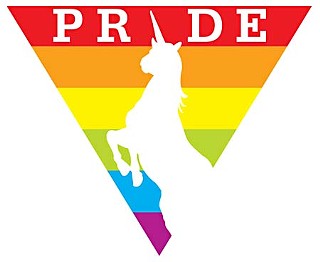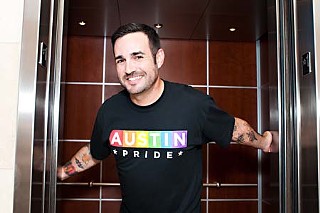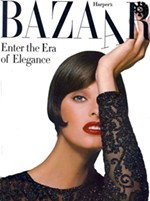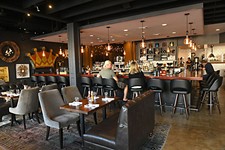Don't Call It a Comeback
Nathan Garcia and Austin Pride make good
By Brandon Watson, Fri., Sept. 21, 2012
Austin Pride started off 2011 in chaos. The mismanagement of the 2010 festivities had left the Austin Gay & Lesbian Pride Foundation with empty coffers, unpaid vendors, and shaky leadership. Emotions in the LGBTQ community were raw. Charges were volleyed that Austin Pride represented few in the community, eschewing leather and marabou pageantry for J. Crew pencil skirts and strollers. It was especially disappointing after the financial success of 2009 Pride, which began with zero budget yet still managed to roll forward a healthy surplus for 2010's budget. Were one to compare it to, say, the national debt, it might bring to mind Bill Clinton's surplus being wiped away by George W. Bush's wanton and misguided excess roiling into the resultant gross deficit. Pride was in desperate need of an Obama.
Meanwhile, the alternative celebration Queerbomb had captured the hearts of those who wanted to honor the activist roots of Stonewall. It looked like the Pride divide had become permanent, portioning off the community into partisan tribes.
Most people would have run away from the fray, but Nathan Garcia saw a chance to make a difference. Garcia didn't buy into assimilationist vs. liberationist, mainstream vs. radical, or gay vs. queer arguments.
"I had friends on both sides. And I had always thought the best way to [bring about change] was to infiltrate from within." Suddenly, he found himself filling a vacancy on the AGLPF board.
"I joined the board in 2011 with the sole purpose of booking entertainment. But I couldn't book anybody because AGLPF had, like, five dollars in the bank," Garcia recalls. "My duties became entertainment director, sponsorship coordinator, and marketing. When [the treasurer] resigned after the 2011 event, I took over the role, taking on the task of organizing the books of 2010 and 2011 – neither of which had been completed. I was given a box full of receipts and paperwork."
Indeed, Austin Pride was on the verge of collapse. The architect of the 2010 fracas, president Chad Peevy, was long gone. The disorganization was exasperating to Garcia. "It appeared that nobody was out there trying to get money in. There were no sponsor packets. They claimed that sponsor packets were sent out, but when I asked to see one, it still said 2010 on it."
Despite obstacles, Garcia and a handful of other volunteers, including current president Paul Huddleston, were able to pull off the seemingly impossible with the 2011 festivities. According to Garcia, not only were they able to pay off over $30,000 in unpaid debt – a large portion of which was owed to the Long Center [full disclosure: outstanding 2010 debt to The Austin Chronicle was also made good by the 2011 board] – but they were also able to donate $14,000 to 10 Central Texas charities. By most measures, Austin Pride 2011 was a success. But there was still that tricky issue of the parade.
Traditionally held at night, the pride parade was moved – in a curious decision – to a 10am kickoff, exactly when the gay bars on the route were closed. Parade organizers were saddled with criticism that the parade reflected only a small and more "normative" portion – churches, civic groups, etc. – of the larger community. The board replied (in conversations with the Chronicle at that time) with claims that after businesses along the parade route had been polled and discussions held with city staff, a morning parade was preferred.
Garcia finds that hard to believe, citing the city's lack of opposition this year. "Perhaps it had less to do with issues with the route and more to do with people being complacent and lax. Some businesses complained last year, and some complained this year, but it's done. Pride is at night."
Pride 2010's middle-of-the-road entertainment is out, too. "There was a time when gay people were progressive, ahead of music, ahead of fashion," Garcia explains. "A lot of Pride booking [nationally] comes from the same agents, so you see the same acts. I wanted to book music that people wouldn't see or hear otherwise."
This year's headliners include Eighties and Nineties dance club hit-makers like diva Shannon ("Let the Music Play"), Stacey Q ("Two of Hearts"), and La Bouche ("Be My Lover"). In addition to these winks at the gay-bar standards, Garcia, with his ear to the underground as a music collector and show promoter (having worked with artists as varied as Bow Wow Wow, the B-52's, Deee-Lite, Atari Teenage Riot, and White Zombie, among others) is hellbent on curating an exciting show. "Austin is a music town, and I want Pride to rock."
Austin Pride headliner Peaches has recently garnered attention by standing up for Russian feminist protest punks Pussy Riot. The bill is augmented by other out and outspoken performers including New Orleans sissy bounce artist (and Diplo collaborator) Nicky da B, controversial RuPaul's Drag Racer Willam, DJ Lori Barbero of riot grrrl legends Babes in Toyland, viral Chloë Sevigny-homage creator Drew Droege, and a cadre of local allied burlesque artists.
Aside from the fun stuff, Garcia wants accountability. "Last year, all of the money was deposited in one lump sum, so I don't even have a breakdown of the attendees. This year, we want to know cost of goods, how many people attended ... not an estimate." This year, Garcia can readily list 2012 figures. Invoices are paid and, as of press time, over 1,300 pre-sale tickets have been sold. Not bad for a once-dying institution.
With his tattooed forearms, Garcia hardly strikes a mainstream Pride pose. The point of this year's theme, "YOUnify and Celebrate," is to bring the community's various factions together, just as they are. Those J. Crew skirts are welcome and encouraged to count themselves as part of the community, but they just may have to make some room.
"I think [some members of the gay community] want so badly to be accepted that they wind up shunning people in their own community." That may be true, but this year, it will not be institutional. This year's board has come out in an embrace of the full spectrum of LGBTQIA expression.
"A lot of people have felt censored by Pride boards over the years," Garcia admits, "but for all of us on this board, we say, do what you want, as long as it is within the realms of the law. There is no dress code. We just want people to be themselves."
Brandon Watson appears each weekday as the Gay Place blog's LGBTQ news AggreGAYtor. austinchronicle.com/gay.










